
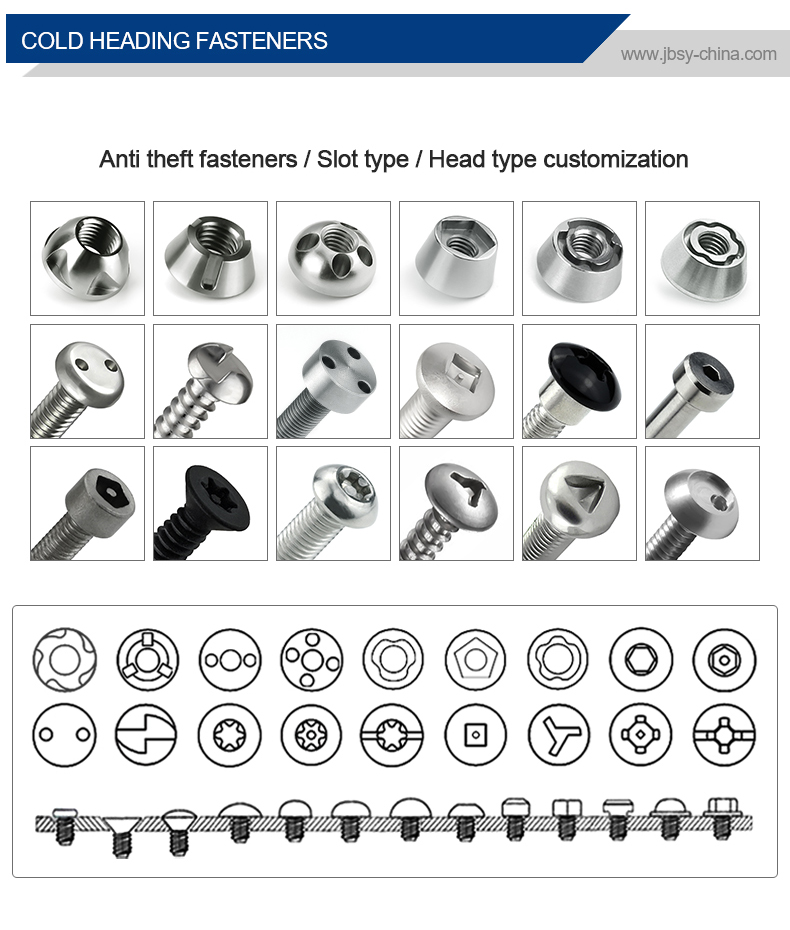
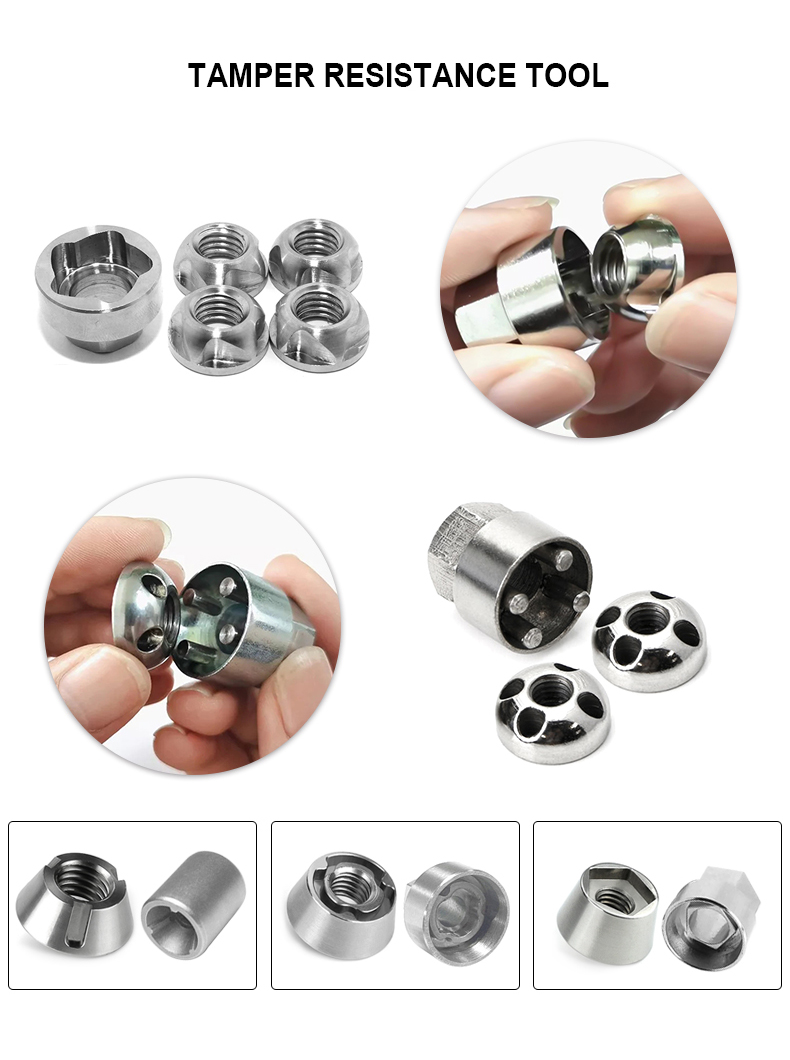
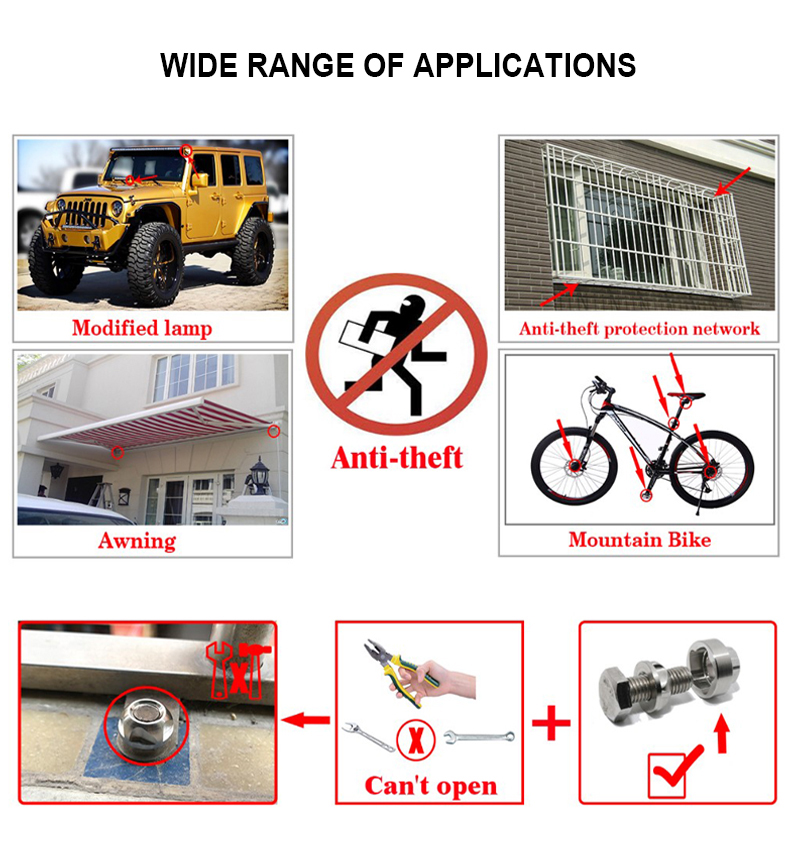
The fastening and opening of bolts and nuts adopts non-standard design, and the matching
non-standard tools are used to solve the opening and fastening problems. In general, other
wrenches cannot be inserted. In the appearance design of nuts and bolts, non-standard slotting,
opening or pentagonal, heptagonal, nine-corner or custom-made corresponding groove tools
have played a very good anti-theft effect
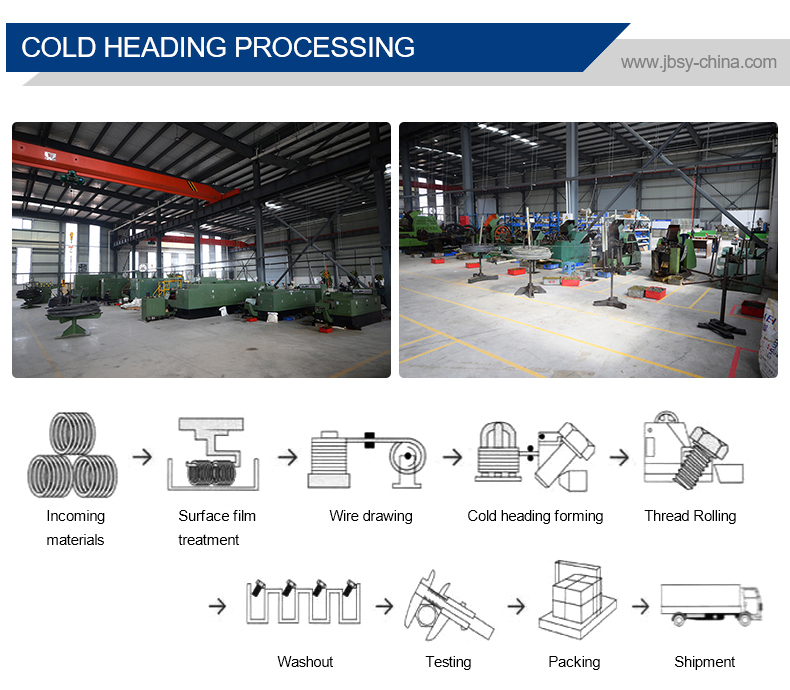
Cold heading process is one of the new processes for pressure machining of less or no cutting
metal. It is a processing method that utilizes the plastic deformation of metal under the action of
external forces, and with the aid of molds, redistributes and transfers the volume of metal to form
the required parts or blanks. The cold heading process is most suitable for producing standard
fasteners such as bolts, screws, nuts, rivets, and pins.etc
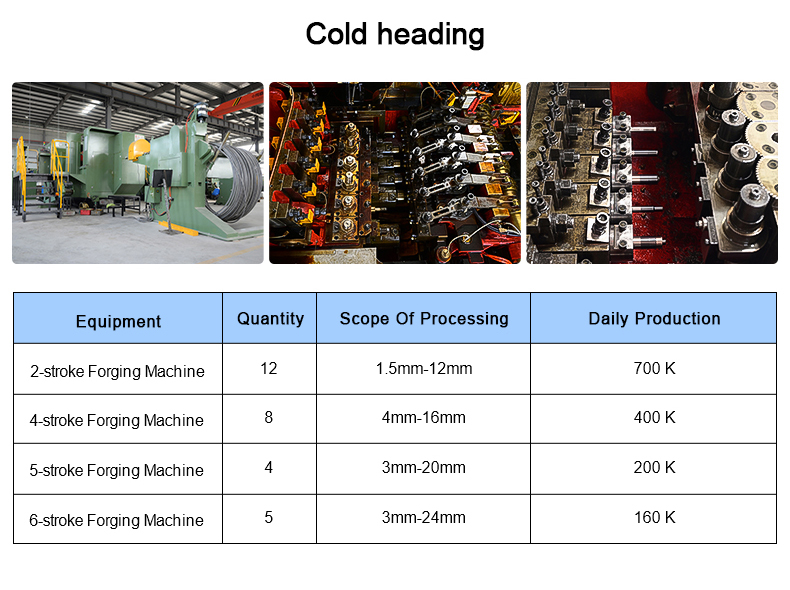
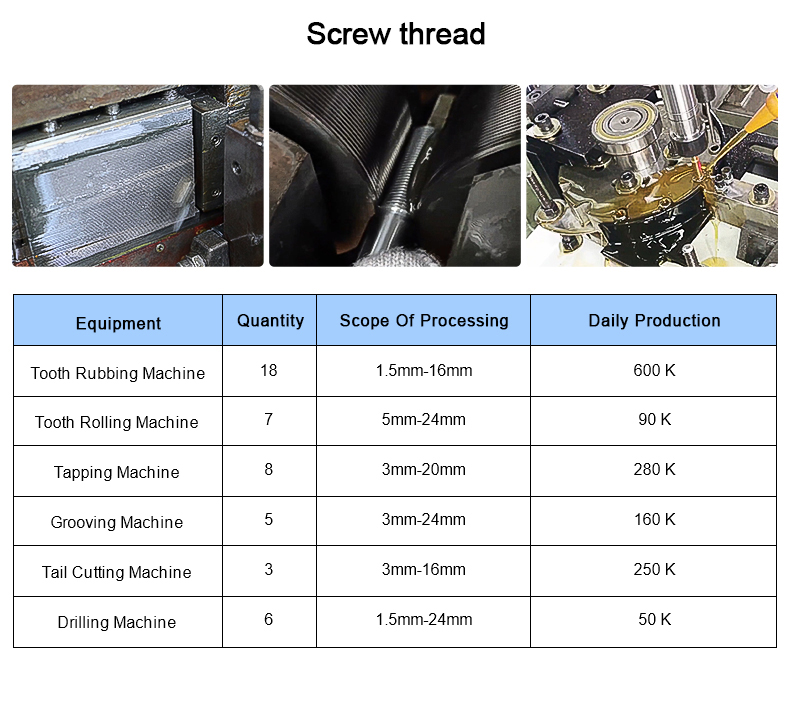
Self-locking lock nuts are specialized fasteners designed to resist loosening under vibration, torque, and dynamic loads without requiring additional components like washers or adhesives. They feature built-in locking mechanisms that create friction or mechanical interference to stay securely fastened.
Types of Self-Locking Lock Nuts
-
Nylon Insert Lock Nuts (Nyloc)
-
Contains a nylon ring that deforms against the bolt threads, creating friction.
-
Reusable to a limited extent (nylon may wear out after repeated use).
-
-
All-Metal Lock Nuts
-
Made entirely of metal with deformed threads or crimped sections.
-
Resistant to high temperatures (unlike nylon inserts).
-
Used in aerospace, heavy machinery, and high-heat environments.
-
-
Prevailing Torque Lock Nuts
-
Features a slightly distorted thread that increases resistance when tightened.
-
Maintains locking ability even after multiple installations.
-
Common in industrial and structural applications.
-
-
Selection Considerations
-
Material: Choose steel, stainless steel, or brass based on corrosion needs.
-
Temperature Range: Nylon inserts fail at high temps (~250°F/121°C max).
-
Reusability: Nyloc nuts wear out; all-metal nuts last longer.
-
Torque Requirements: Some nuts require higher installation torque.
Self-locking nuts are essential for safety-critical and high-vibration applications. Would you like recommendations for a specific use case?






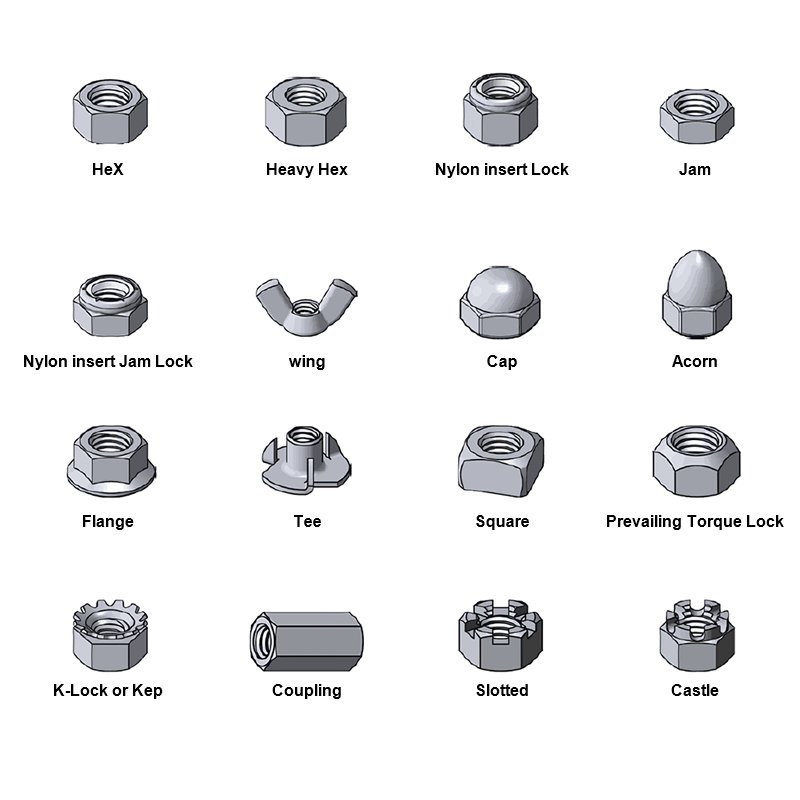
Reviews
There are no reviews yet.